
“Andromeda, Unexpected” © Marcel Drechsler, Xavier Strottner and Yann Sainty. Overall winner and Winner Galaxies.
“A team of amateur astronomers led by Marcel Drechsler, Xavier Strottner, and Yann Sainty made a surprising discovery − a huge plasma arc next to the Andromeda Galaxy. Scientists are now investigating the newly discovered giant in a transnational collaboration. It could be the largest such structure in the nearby environment in the Universe. The Andromeda Galaxy is the closest spiral galaxy to the Milky Way. It is undoubtedly one of the most photographed deep-sky objects ever. The new discovery of such a large structure in the immediate vicinity of the galaxy was all the more surprising.”
Organized by the Royal Observatory Greenwich, the Astronomy Photographer of the Year contest is in its 15th year and has become a highly anticipated event for lovers of astronomy and astrophotography. And this year, a big discovery by a group of amateur astronomers won. Marcel Drechsler, Xavier Strottner, and Yann Sainty took home the top prize for their image of a large plasma arc next to the Andromeda Galaxy.
While Andromeda is one of the most photographed objects in deep space, the arc has never been previously observed. Scientists are now studying the plasma arc, which might be the largest structure of its kind this close to our Universe. The image highlights the key role that amateur astronomers still have in making discoveries about outer space.
“It’s an enormous honor for our team to receive this important award, and we are grateful for all the support, friendship, and encouragement we have received along our journey,” shares the team. “It encourages us to continue to pursue our passion for astrophotography and, of course, research with dedication.”
For their part, the judges were highly impressed by the quality of the image. “This astrophoto is as spectacular as it is valuable. It not only presents Andromeda in a new way, but also raises the quality of astrophotography to a new level,” says competition judge László Francsics.
The winning image from the youth competition was also a team effort. Runwei Xu and Binyu Wang, both 14 years old, share the title of Young Astronomy Photographer of the Year for their beautiful photo of the Running Chicken Nebula. The detail and clarity of their photograph prove that great astrophotography can happen at any age.
Other standouts include Monika Deviat’s photo of a green sliver of an aurora in isolation, which almost looks like a brushstroke and a rare glimpse of the Moon passing in front of Mars by Ethan Chappel. These photographs won the Aurorae and Our Moon categories, respectively. They were both awarded for their originality and the high level of skill needed to create the image.
Scroll down to see all the winners of the 2023 Astronomy Photographer of the Year competition. They will all be on display in an exhibition opening September 16, 2023, at the National Maritime Museum.
Check out the incredible winning astrophotography from the 2023 Astronomy Photographer of the Year contest.
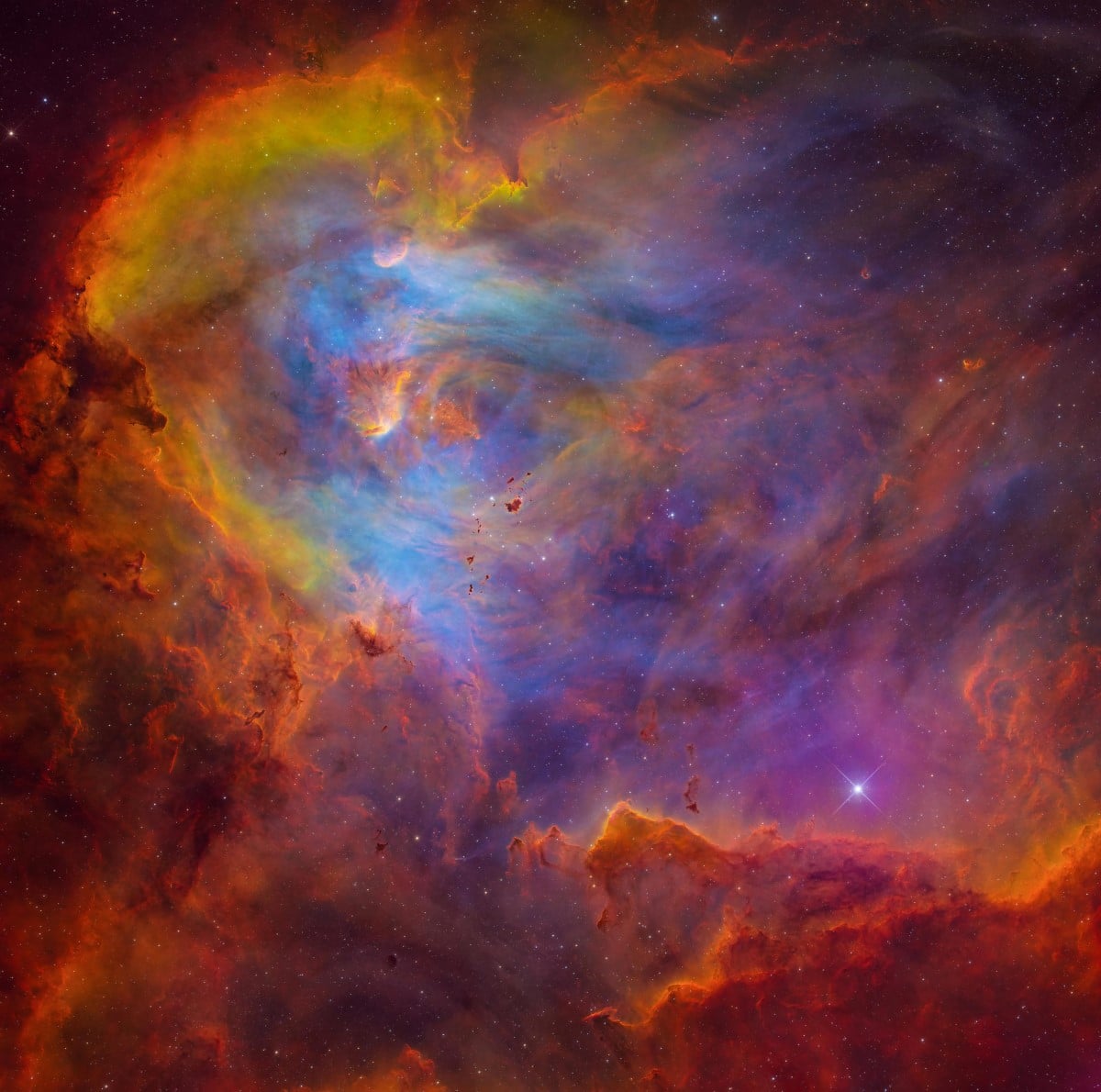
“The Running Chicken Nebula” © Runwei Xu and Binyu Wang. Winner Young Astronomy Photographer of the Year.
“The Running Chicken Nebula, IC2944, is located in the constellation of Centaurus, 6,000 light years away from the Earth. Embedded in the nebula’s glowing gas the star cluster Collinder 249 is visible.”
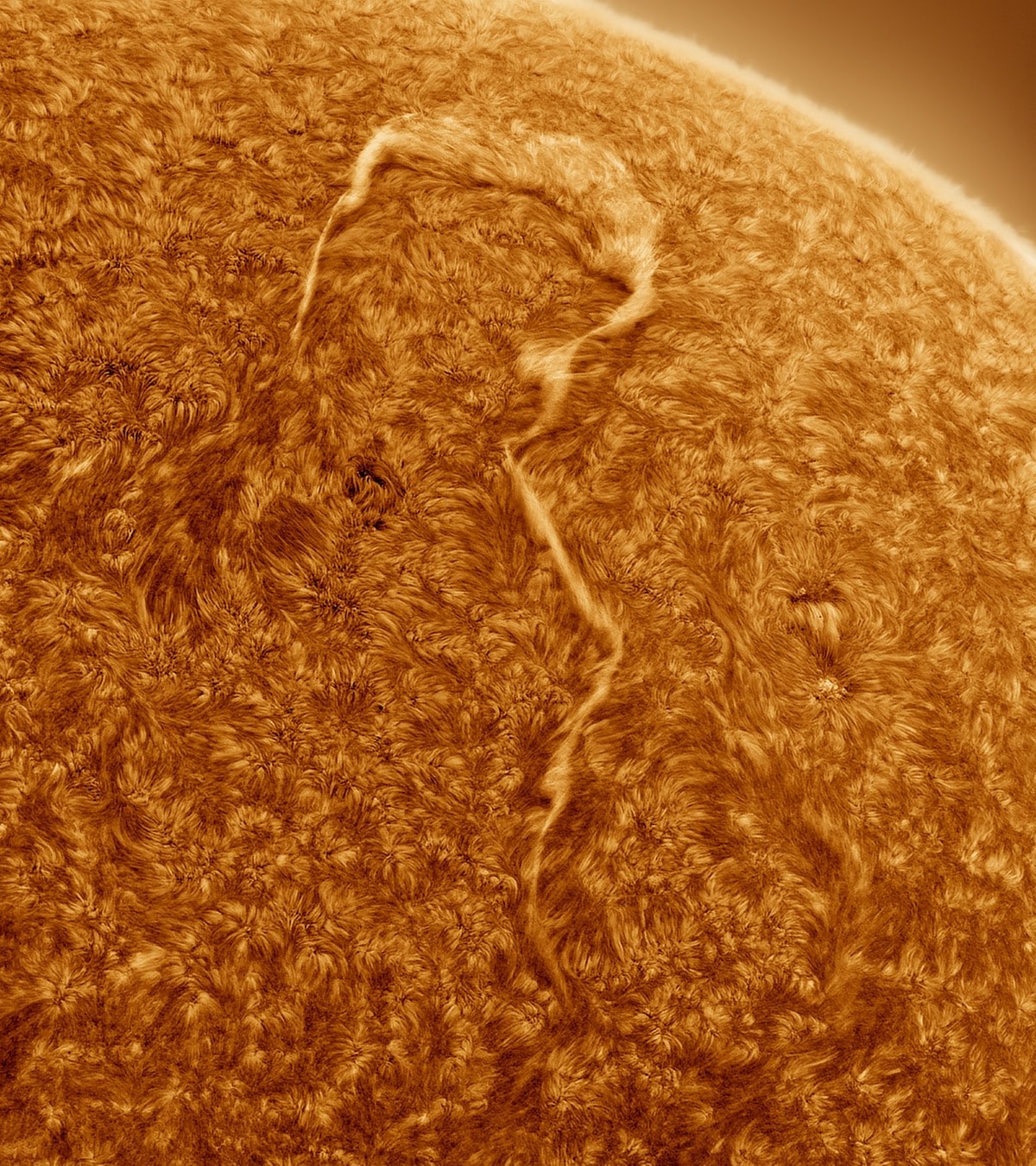
“A Sun Question” © Eduardo Schaberger Poupeau. Winner Our Sun.
“A photograph of the Sun with a huge filament in the shape of a question mark. Solar filaments are arcs of plasma in the Sun’s atmosphere given shape by magnetic fields. The photo is a mosaic of two panels.”
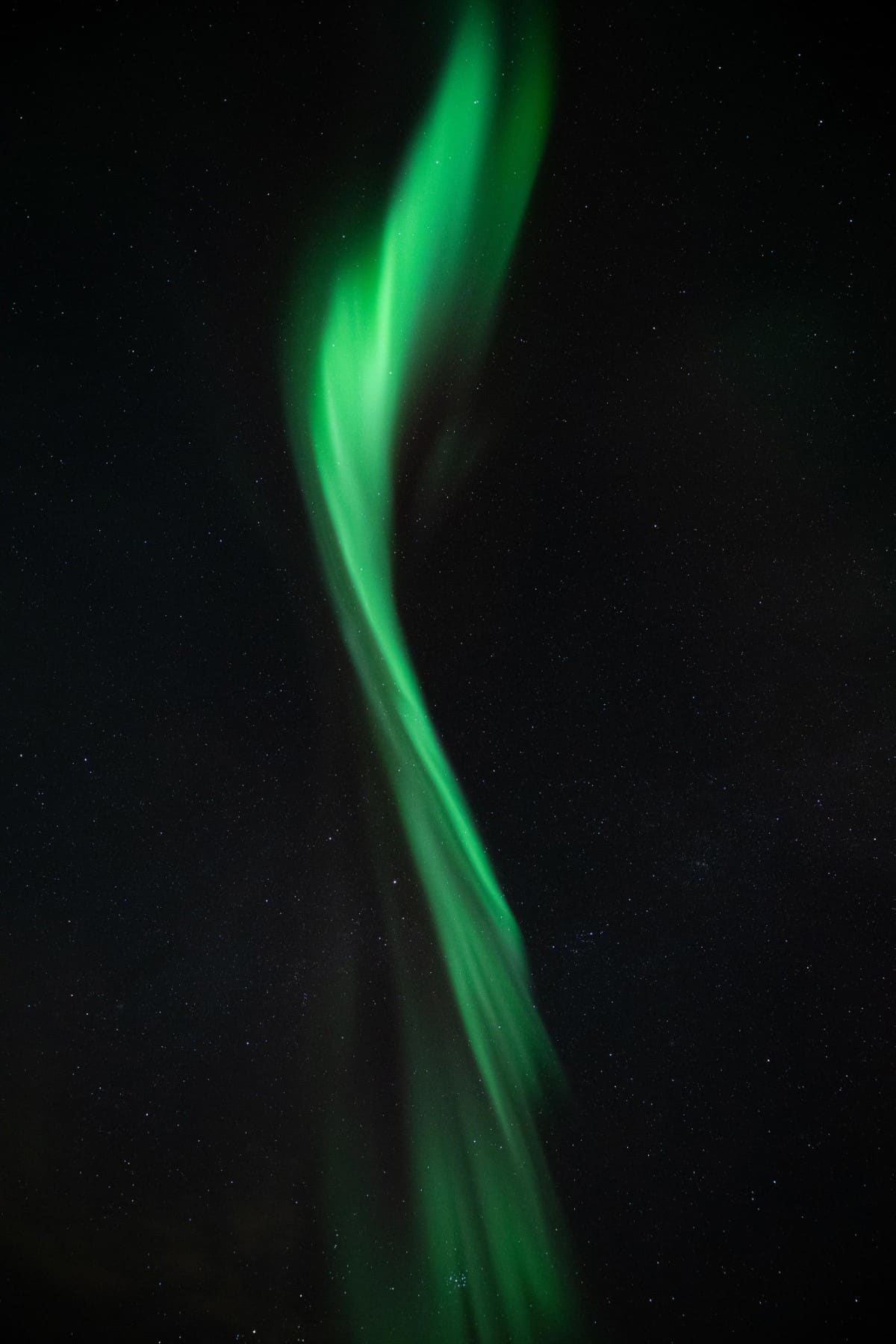
“Brushstroke” © Monika Deviat. Winner Aurorae.
“An abstract aurora in the shape of a brushstroke. Unusually, the photographer decided to photograph the aurora in isolation.”
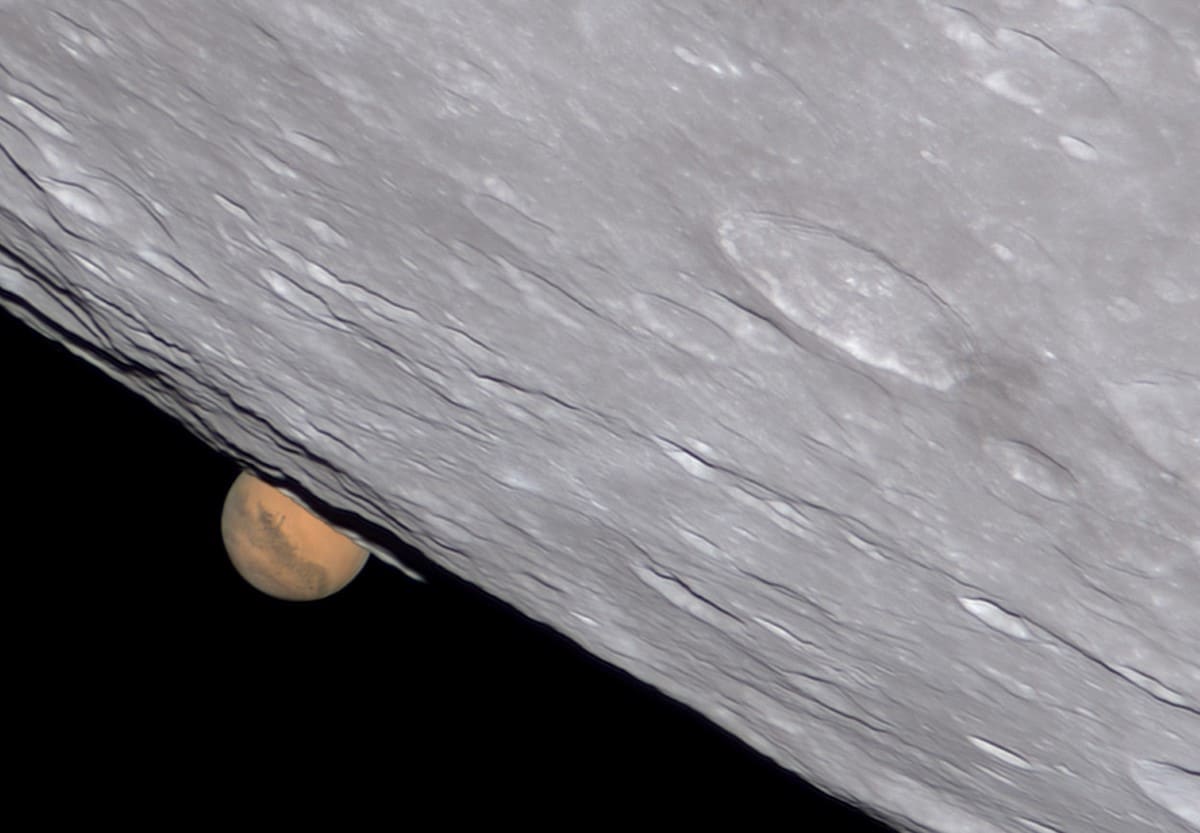
“Mars-Set © Ethan Chappel. Winner Our Moon.
“An occultation of Mars that took place on 8 December 2022. During the occultation, the Moon passes in front of the planet Mars, allowing the astrophotographer to capture both objects together. The image shows Mars behind the Moon’s southern side in impressive detail.”
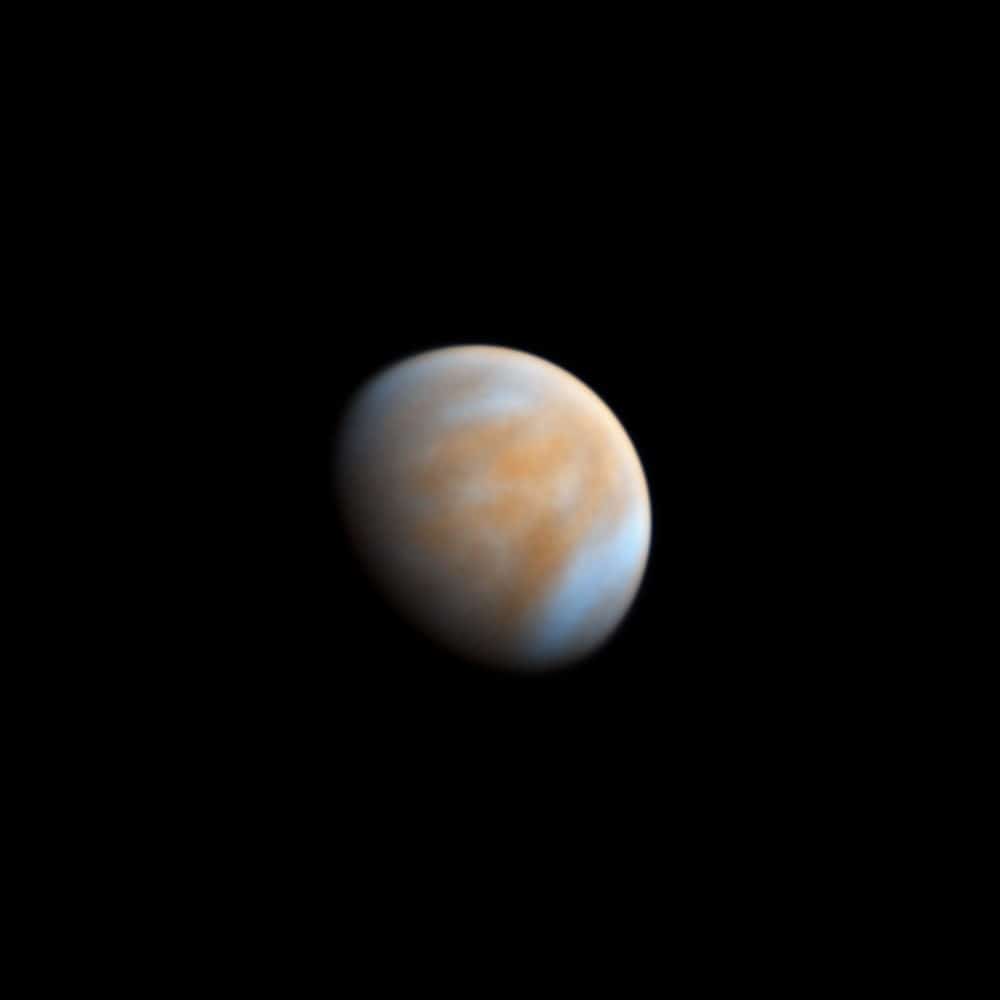
“Suspended in a Sunbeam”© Tom Williams. Winner Planets, Comets & Asteroids.
“A unique view of Venus using infrared or ultraviolet false color. By going beyond the visible part of the spectrum, a myriad of fine detail within the upper atmosphere of the planet is revealed.”
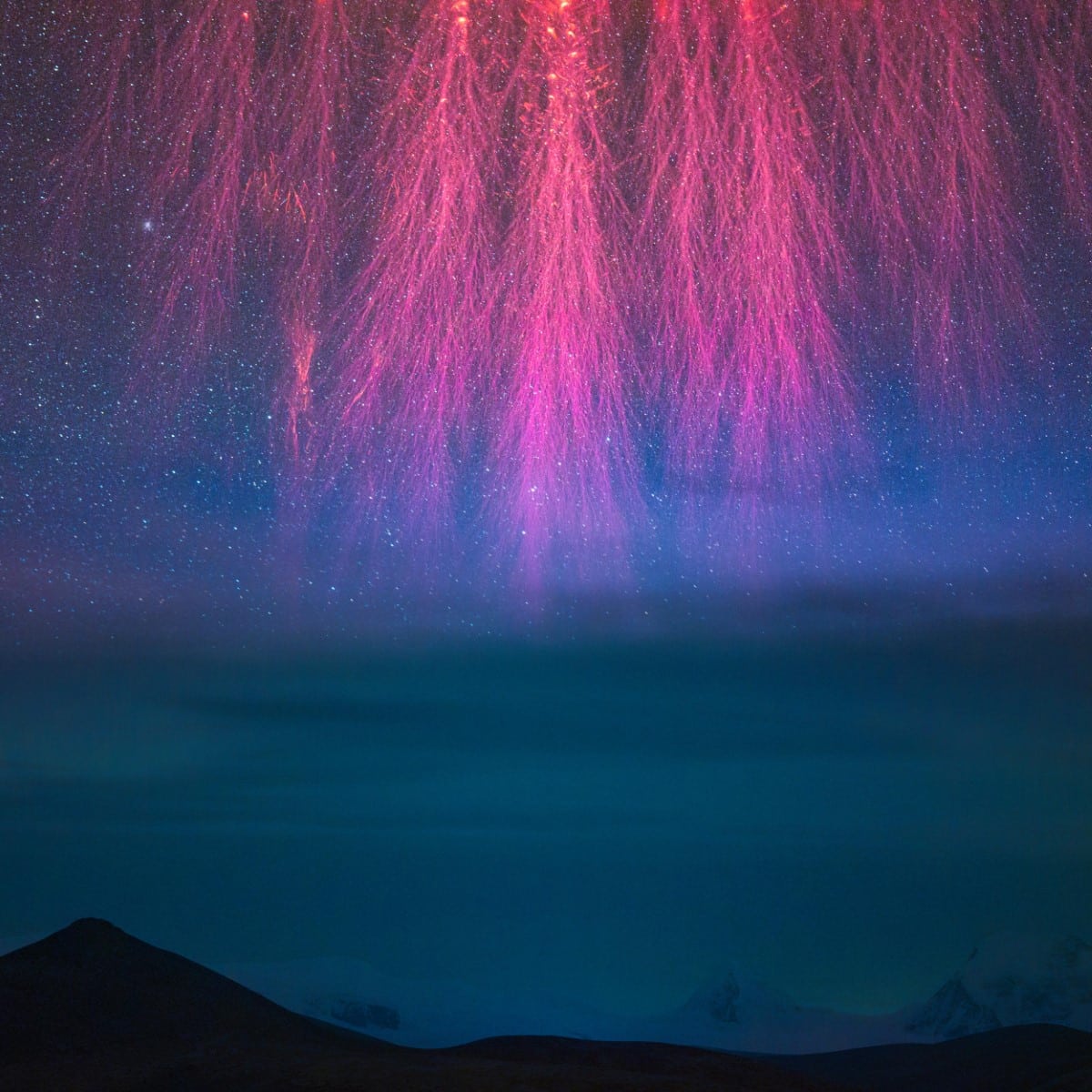
“Grand Cosmic Fireworks” © Angel An. Winner Skyscapes.
“Sprites are an extremely rare phenomenon of atmospheric luminescence that appear like fireworks. An took this photograph from the highest ridge of the Himalaya mountains.”
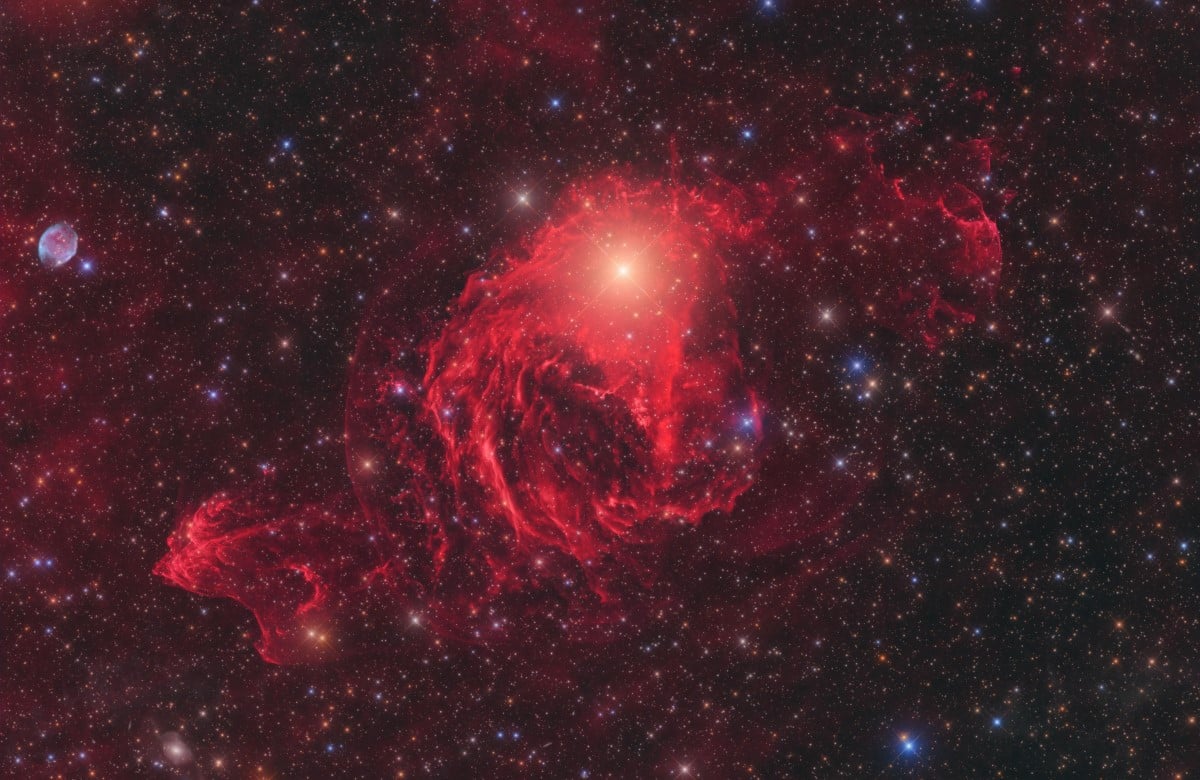
“New Class of Galactic Nebulae Around the Star YY Hya” © Marcel Drechsler. Winner Stars & Nebulae.
“A team of amateur astronomers, led by Marcel Drechsler from Germany and Xavier Strottner from France, were able to make an important contribution to the study of the evolution of binary star systems: on old images of sky surveys, they discovered a previously unknown galactic nebula. At its center, a pair of stars surrounded by a common envelope was found. On over 100 nights, more than 360 hours of exposure time were collected. The result shows an ultra-deep stellar remnant that the team has baptized ‘the heart of the Hydra.’”
All of the winning photos will be included in an exhibition at the National Maritime Museum in Greenwich, London.
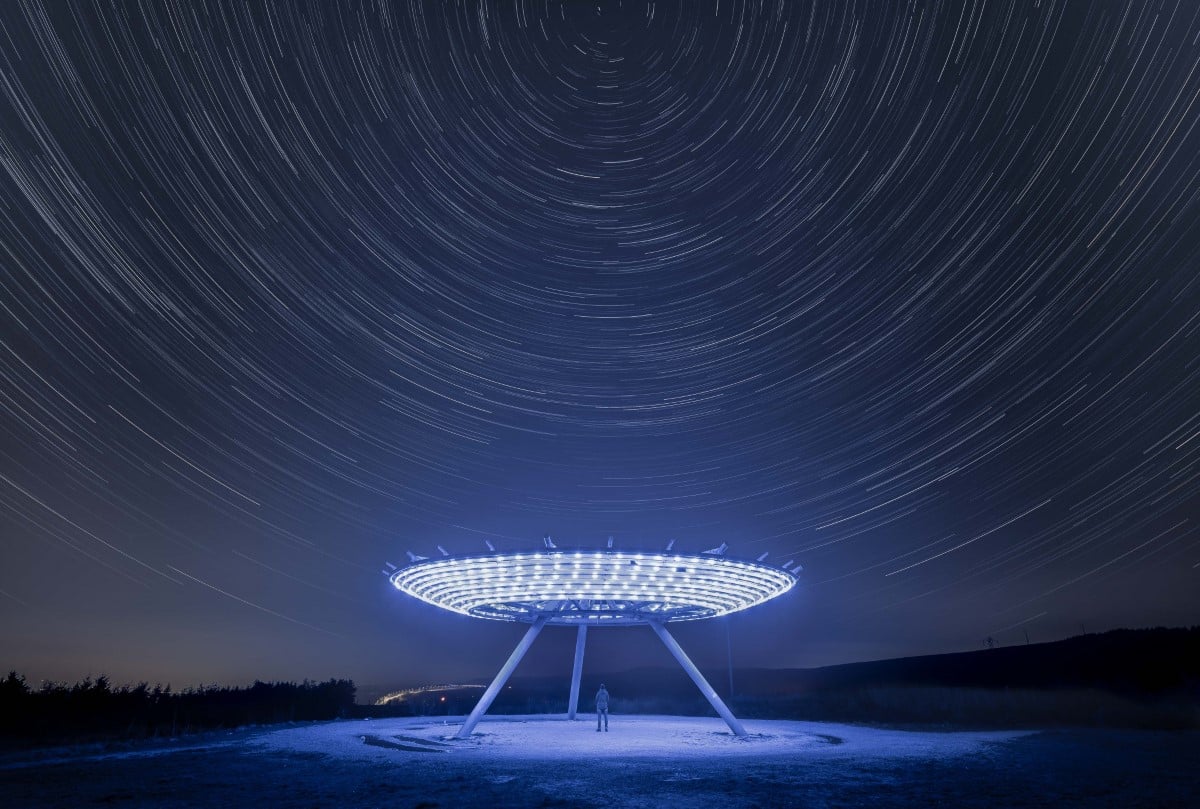
“Close Encounters of The Haslingden Kind” © Katie McGuinness. Highly Commended People & Space.
“Haslingden’s Halo is an 18-meter diameter sculpture located in the hills of Lancashire. McGuinness took inspiration from the Close Encounters of The Third Kind film poster to create her image. More than 150 images, taken over an hour and with exposures of 25 seconds each, were combined to show the apparent rotation of stars around Polaris.”
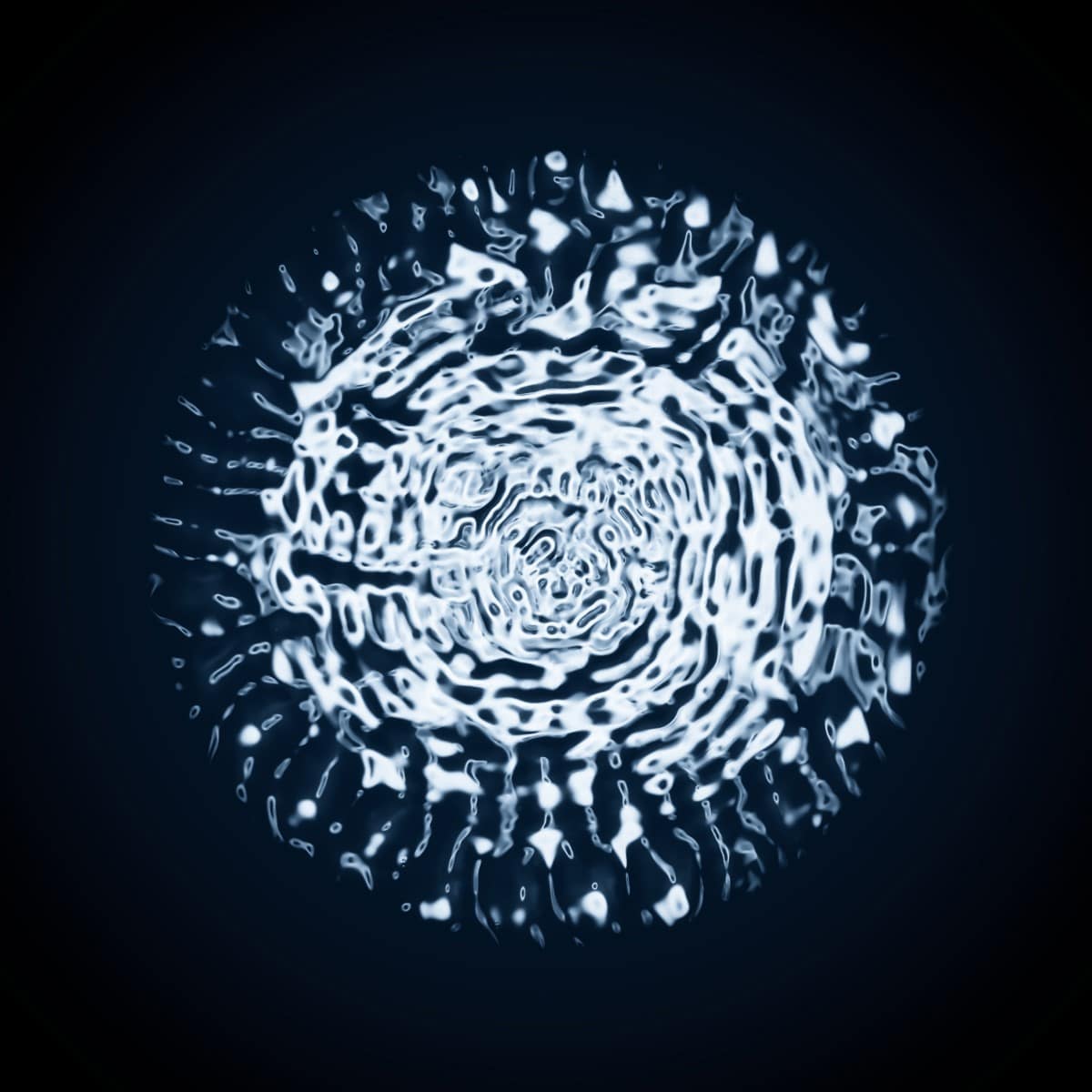
“Black Echo” © John White. Annie Maunder Prize for Image Innovation.
“Taking audio source material from NASA’s Chandra Sonification Project, White visually captured the sound of the black hole at the center of the Perseus Galaxy.
The audio was played through a speaker onto which White attached a petri dish, blacked out at the bottom and then filled with about 3 mm of water. Using a macro lens and halo light in a dark room, White experimented with the audio and volumes to explore the various patterns made in the liquid.”
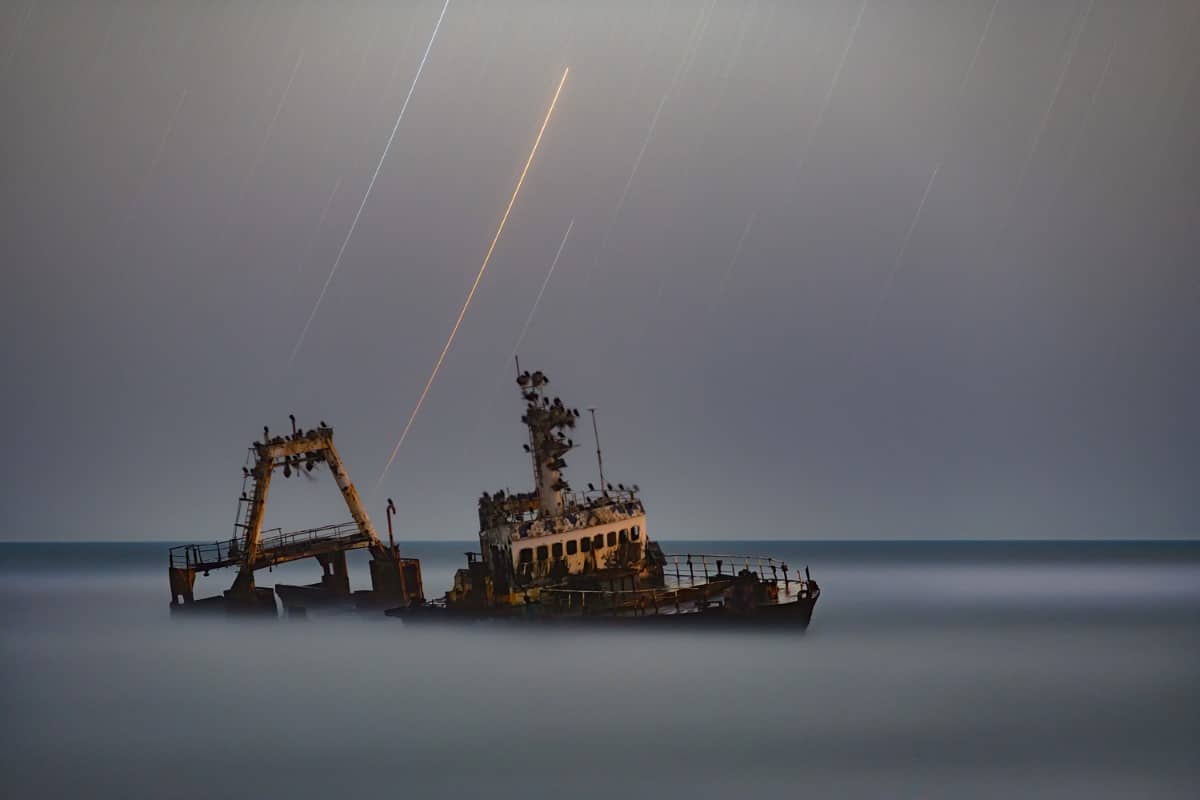
“Zeila” © Vikas Chander. Winner People & Space.
“The most northerly part of Namibia’s Atlantic facing coast is one of the most treacherous coastlines in the world and has gained the name the Skeleton Coast.
The ship in this photo, Zeila, was stranded on 25 August 2008 and is still in a well-preserved state. The image shows the delicate colors of different star types.”
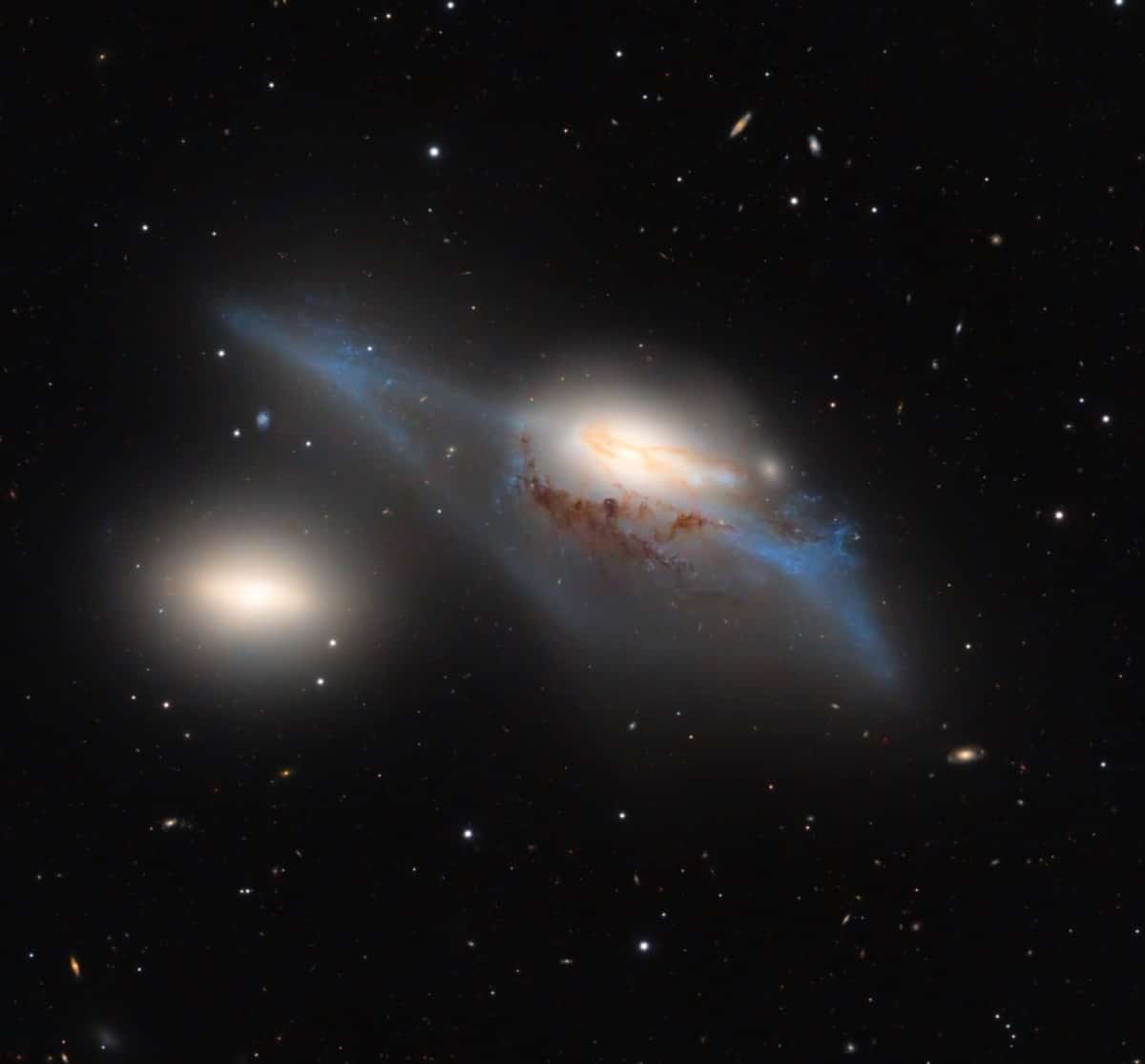
“The Eyes Galaxies” © Weitang Liang. Runner Up Galaxies.
“The Eyes Galaxies (NGC 4438) are the famous interacting galaxies in the Virgo Cluster. They’re small and require a large telescope to reveal their many components, such as the dust in the middle and the tiny flares on the left and right. Those tiny details have rarely been revealed on other amateur images.”
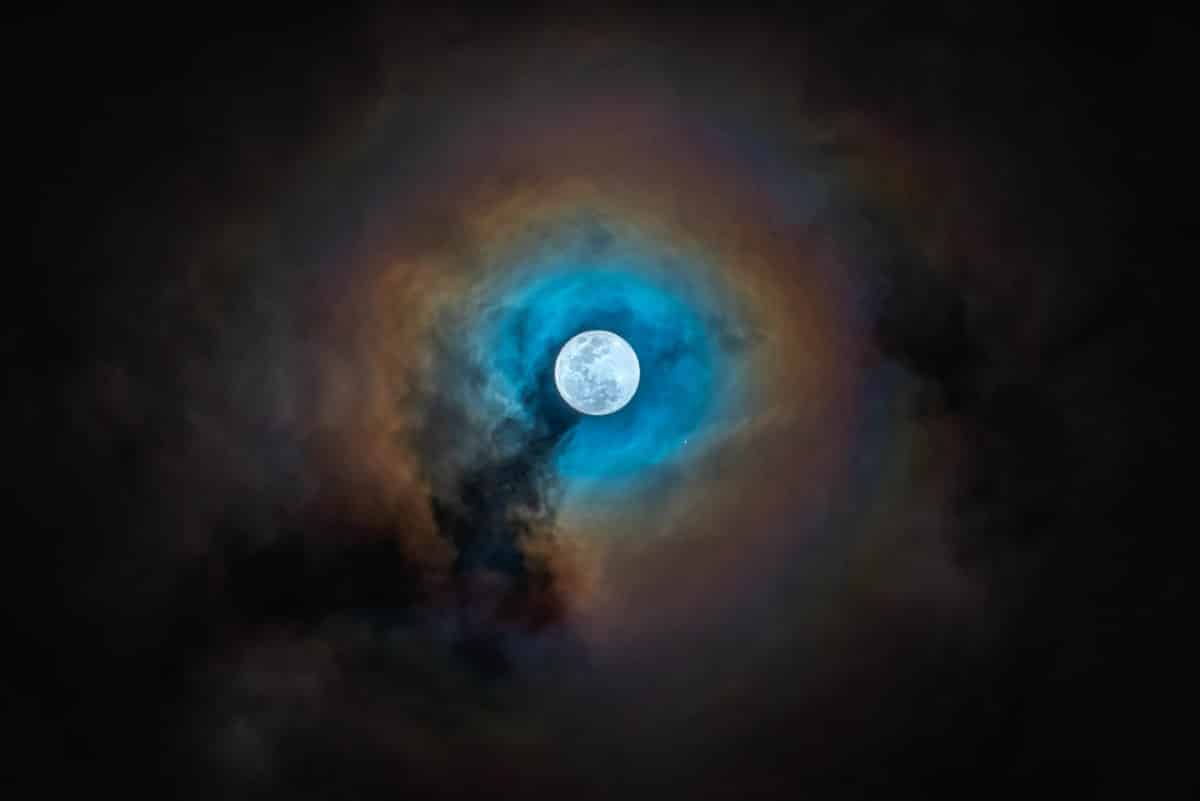
“Last Full Moon of the Year Featuring a Colourful Corona During a Close Encounter with Mars” © Miguel Claro. Highly Commended Our Moon.
“A photograph of the last Full Moon of 2022 immersed in clouds. The colourful ring surrounding the Moon is a lunar corona, which occurs when moonlight is diffracted though water droplets in the Earth’s atmosphere. Mars can just be seen to the right of the Moon, appearing as a small orange dot.”
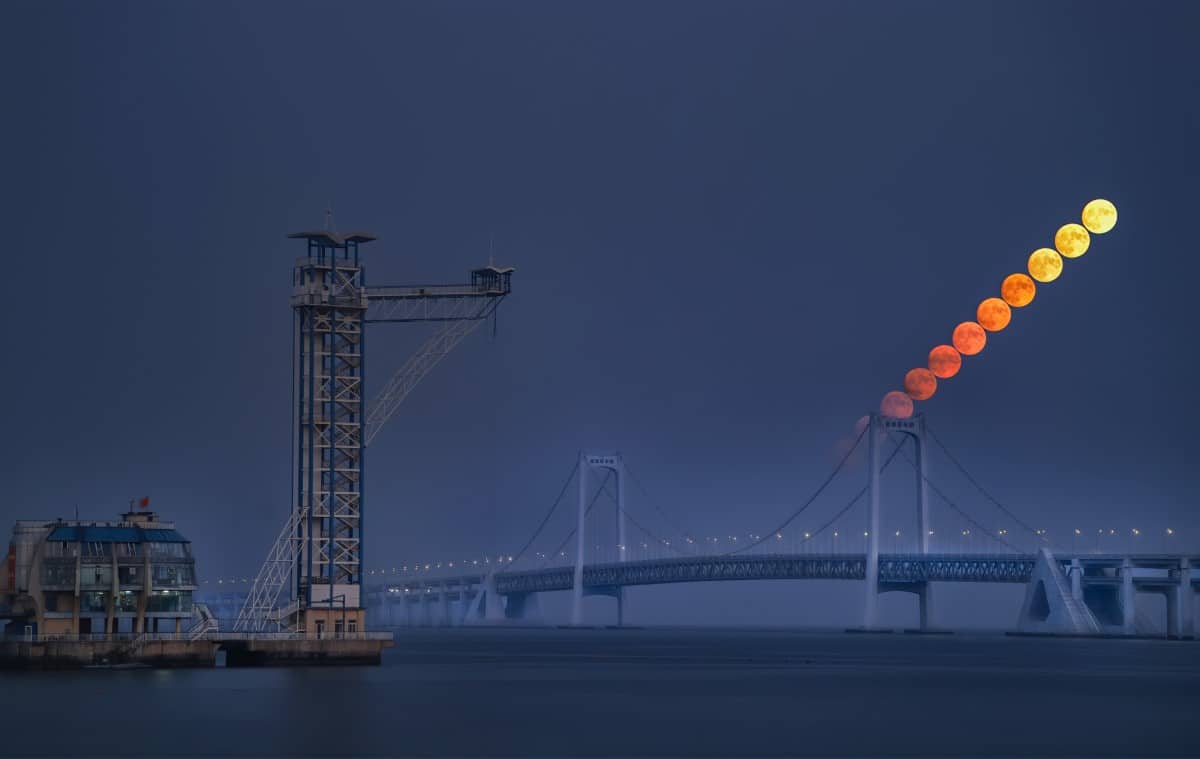
“Moon at Nightfall” © Haohan Sun. Highly Commended Young Astronomy Photographer of the Year.
“A photograph of a moonrise over the Xinghai Bay Bridge in Dalian. Atmospheric extinction alters the hue and brightness of the Moon when it is low on the horizon. In this photo, you can see the Moon appears brighter and less red as it rises in the sky.”
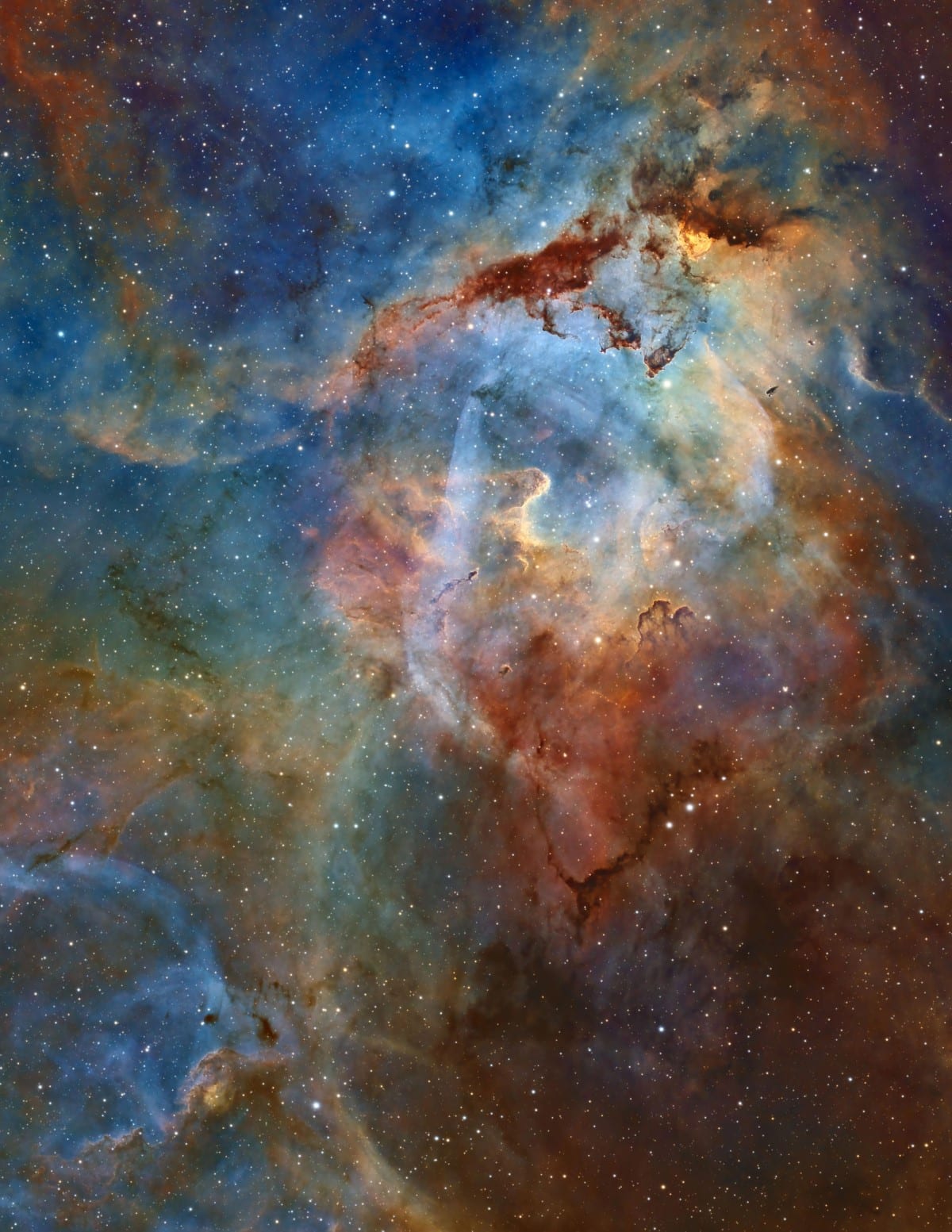
“Sh2-132: Blinded by the Light” © Aaron Wilhelm. The Sir Patrick Moore Prize for Best Newcomer.
“The Sh2-132 complex lies near the border of the Cepheus and Lacerta constellations and contains multiple deep sky structures. The photograph includes 70 hours of data, the rich interplay of all the gasses reveals something different each time you look at it.”
